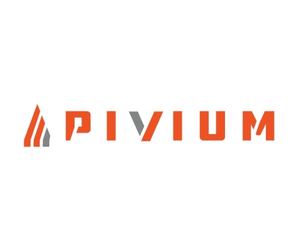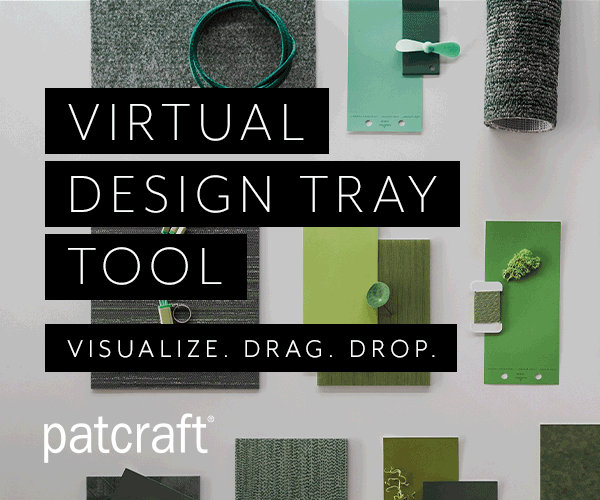 |
 |
|
JANUARY 2022
EDAC Remains the "Essential Credential"

When we launched the EDAC Evidence-Based Design Accreditation and Certification program in 2009 it was, like all new ventures, somewhat a leap of faith. While professionals throughout the industry encouraged its development, citing a genuine need for evidence-based design practitioners to coalesce around a common language and process, we were quietly asking ourselves, “If we build it, will they come?”
Having now recently recognized the 3,000th EDAC certification – awarded to Danielle Reisman of Noyes Art Design in Cleveland – we can confidently say “Yes” and take a moment to celebrate all that EDAC has become and all the promise that it still holds.
To check the “pulse” of the EDAC program, we conducted focus groups of some recently and long-time certified professionals at October’s HCD Conference. They shared one common perspective – EDAC continues to be “the essential credential” for anyone committed to improving healthcare through evidence-based design.
New certificants talked about the encouragement and strong recommendations they received from mentors and managers to get their EDAC credential. Long-time EDACs reflected on the professional ties they have built over the years with other EDACs and how those collaborations have benefitted their projects and careers.
And we see evidence of EDAC’s continued growth and impact in exciting ways:
If you’re not EDAC certified yet, there’s never been a better time (or better reasons). Through the end of January you can get 10% off the exam price and take it risk free. Get all the details here.
Be well,

Debra Levin, Hon. FASID, EDAC
President and CEO
|
|
WE INVITE YOU
|
|
Voices of the Industry
Thursday, January 27, 2022
10:00 AM PST / 1:00 PM EST
FREE | CEUs Available
REGISTER
The evolution of healthcare design has seen dramatic, and often times revolutionary changes shepherded by icons of the industry whose leadership has had lasting impact.
Hosted by Center board member Barry Rabner, this exchange with two titans of the industry – 2021 Changemaker Dr. George Tingwald of Stanford Health Care and Lifetime Achievement Award recipient Frank Zilm of the University of Kansas – will share their real-world experiences, memorable stories from their careers and most importantly, they’ll help guide attendees towards a path forward and shed light on their view of the opportunities for the future of healthcare delivery and design.
Learn more and register here.
Presenting Faculty

Barry Rabner
Retired President and CEO and Trustee, Penn Medicine Princeton Health, Board member, The Center for Health Design

George Tingwald, MD, AIA, ACHA
Administrative Director, Medical Planning, Stanford Health Care

Frank Zilm, D.Arch, FAIA, FACHA
Chester Dean Director of the Institute for Health+Wellness, University of Kansas School of Architecture & Design
Sponsor Partner

|
|
|
 |
 |
|
Free Tools & Resources
|
|
Slidecast: The Influence of Evidence-Based Design on Staff Perceptions of a Supportive Environment for Person-Centered Care in Forensic Psychiatry
In recent years, there has been a philosophical shift to prioritize a therapeutic social model for long-term forensic psychiatric care over a curative or correctional model which dramatically changes expectations for and demands placed upon the design of the built environment. Research is needed to understand the relationship between the physical environment, provision of care, and workforce outcomes.
This study used repeated questionnaires to solicit staff perceptions of and experience with the delivery of person-centered care before and after the relocation of three forensic psychiatric hospitals into new purpose-built facilities.
This slidecast helps to illustrate how the provision of person-centered care is intended to honor those providing as well as receiving rehabilitation and reintegration care and services.
|
|
|
Upcoming Events
|
|
Next Thursday: Two Webinars Highlighting Research and the Functional Program
1/20 10:00 AM PT / 1:00 PM ET, Webinar: Research Matters: 10 Picks to Kick Off 2022
There are literally millions of peer-reviewed articles published each year. How can busy healthcare professionals keep up? Using their own visual abstracts, The Center’s research team will present ten papers to help researchers and practitioners in health design walk away with a better understanding of these hand-picked studies from 2021, synthesized visually in under one hour.
1/20 12:00 PM PT / 3:00 PM ET, Webinar: What Are You Building and Why? A Guide to the Answers
Healthcare facility design requires a detailed understanding of the need for a project, as well as the context within which it will be built. This webinar will highlight how to use our Functional Program Process Guide and how design teams can enhance communication, encourage innovation, and highlight both quality and quantity.
|
|
|
Classic Resources
|
|
EDAC Advocate Firm Project: Future Inclusive Mental Health Inpatient Units: Designing for Medical & Mental Complexity | HGA
Healthcare design communities are steadfastly focused on improving quality, safety, dignity and efficiency in acute psychiatric units. However, as the number of patients with both behavioral health and medical conditions increases, current room designs fail to meet the needs of this unique population. The goal of this project was to create a new room type — to safely integrate medical and psychiatric care in the inpatient environment.
Member Project: Bronson South Haven Hospital | Matthei & Colin Associates
The goal of Bronson South Haven Hospital was to impact the patients, families, staff and communities served in a positive and proficient environment while maintaining a high standard of quality care and a well-organized use of space.
The concept of a much more efficient and smaller “Neighborhood Hospital” was a direct result of the challenges facing the hospital system and how best to further a new healthcare model.
|
|
|
 |
|
How to Rethink Healthcare Engagement in 2022
|
|
In recent years, the rate of change across the healthcare industry has accelerated. And for healthcare organizations across the board, staying one step ahead of this change is key to strengthening engagement and providing exceptional consumer experiences. While the healthcare industry made strides to deliver connected experiences during a tumultuous year and a half in the pandemic, the reality is that consumers still bear the brunt of navigating a very complex and often disjointed healthcare ecosystem.
MedCity News, read more...
|
|
|
Trends in Senior Living Communities Spotlight Amenities
|
|
As the baby boom generation continues to retire in large numbers, the construction of senior living communities has seen an uptick. With more of these facilities popping up, architects and facilities managers are looking to create communities that not only are experimental but that function in ways that allow them to offer the best care.
Healthcare Facilities Today, read more...
|
|
|
Design Ethics: Rethinking Practice in 2021
|
|
Ethical practice spans all parts of architecture. From intersectionality and labor to the climate crisis, a designer must work with a range of conditions and contexts that inform the built environment and the process of its creation. Across cultures, policies and climates, architecture is as much functional and aesthetic as it is political, social, economic, and ecological. By addressing the ethics of practice, designers can reimagine the discipline's impact and who it serves.
ArchDaily, read more...
|
|
|
Modular Construction – Forging a New Path in Rapid Construction
|
|
As technology improves, so do construction techniques - often in ways that can be complex to understand. With so many burgeoning trends and methodologies, it can be challenging to decide which opportunities are worth the investment needed to properly evaluate and implement, and which are not. Modular construction is one such technique that is worth considering.
CONSTRUCTIONDIVE, read more...
|
|
 |
 |
 |
 |
|
ABOUT US
The Center for Health Design is a nonprofit 501c(3) organization whose mission is to transform healthcare environments for a healthier, safer world through design research, education and advocacy. Learn more. For information about sponsor or partnership opportunities, contact our VP of Relationship Development, Randy Carter.
|
|
|




















